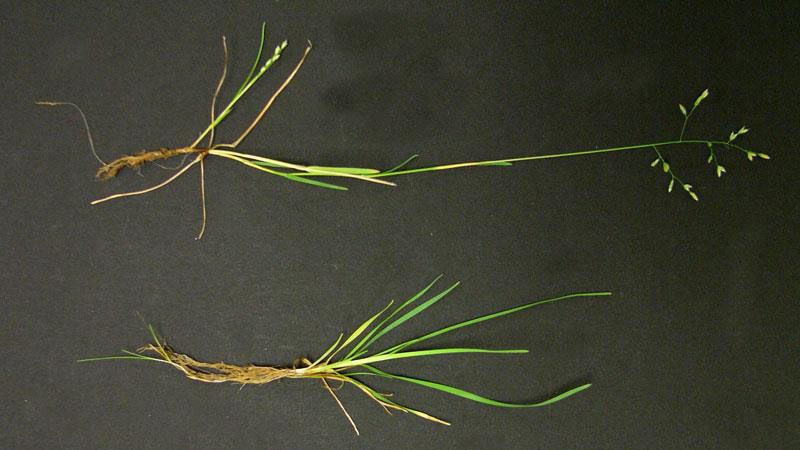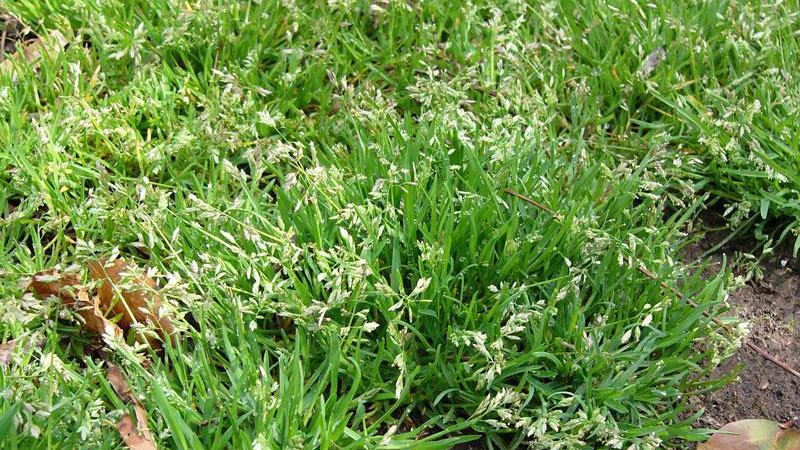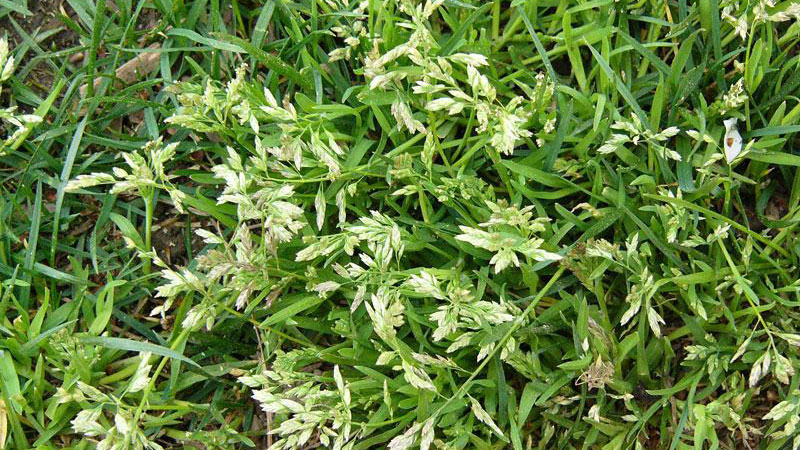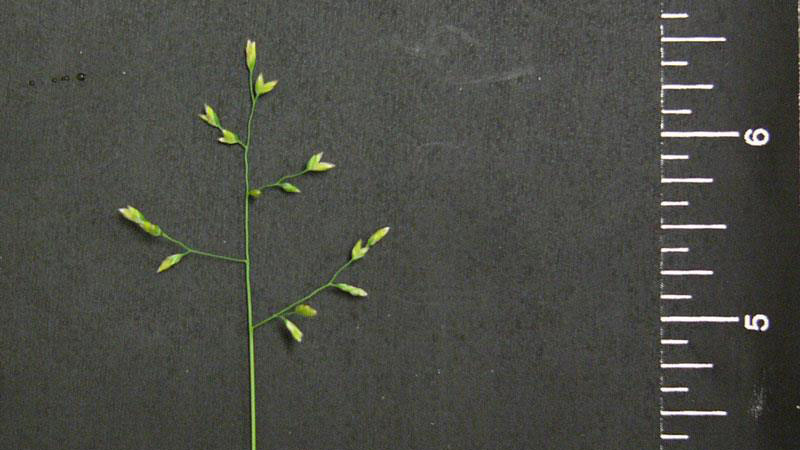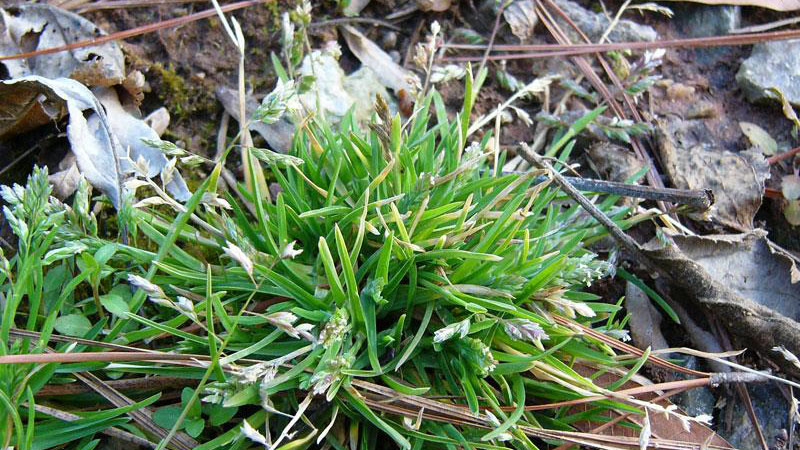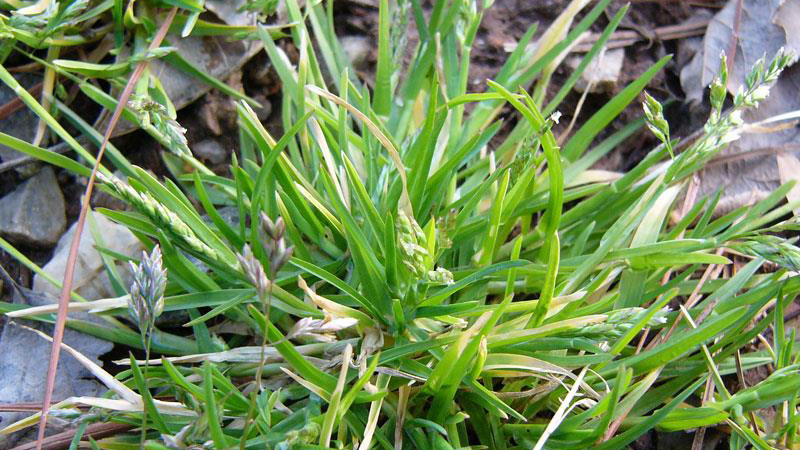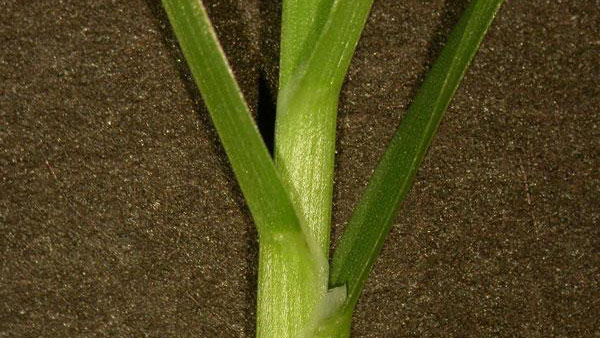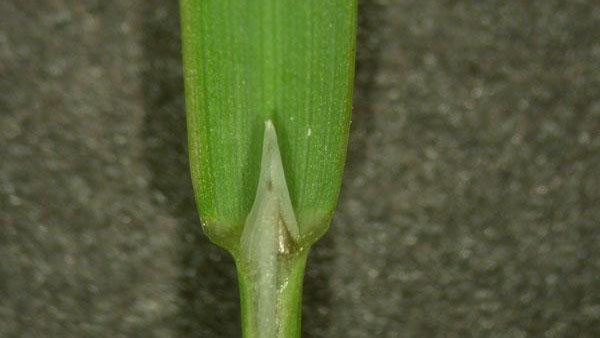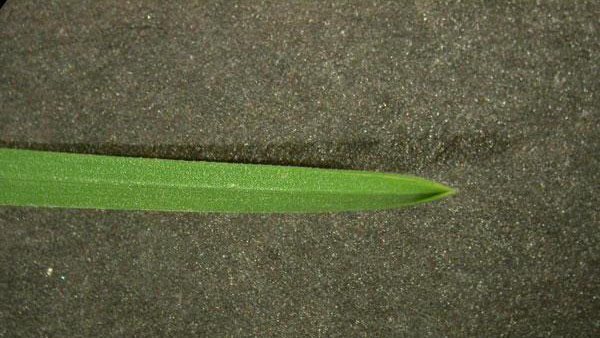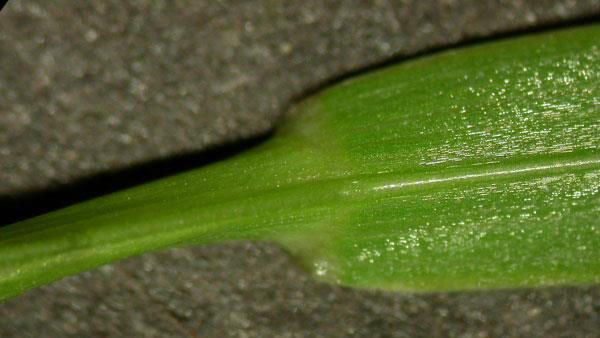Description
Annual bluegrass (Poa annua)is a light green bunch-type to slightly spreading winter annual weedy grass. Some subspecies exist which are classified as short-lived perennials (Poa annua ssp. reptans). These perennial types are particularly evident in bentgrass golf greens. One reason annual bluegrass is so unsightly is its ability to produce a light colored seedhead even at very low mowing heights.
Cultural Control
Management practices that encourage annual bluegrass persistence include: 1) excessively close mowing; 2) shallow, frequent irrigation; 3) poor soil drainage; 4) improperly timed fertilization; 5) aerifying or dethatching during primary periods of germination; 6) use of heavy equipment causing compaction; and 7) shade.
Species Data
- SEEDHEAD / FLOWER
- VERNATION TYPE
- leaves folded in the bud
Figure 7
- leaves folded in the bud
- LIGULE TYPE
- membranous; sharp pointed entire, 0.04 - 0.12 inches (1 - 3 mm) long
Figure 8
- membranous; sharp pointed entire, 0.04 - 0.12 inches (1 - 3 mm) long
- GROWTH SEASON / LIFE CYCLE
- winter annual weed
- AURICLE TYPE
- absent
- LEAF BLADE TIP SHAPE
- boat shaped; smooth above and below, not glossy, light green; two distinct, clear lines, one on each side of the midrib
Figure 9
- boat shaped; smooth above and below, not glossy, light green; two distinct, clear lines, one on each side of the midrib
- LEAF BLADE WIDTH
- 0.08 - 0.1 inches (2 - 3 mm) wide
- STOLON PRESENCE
- absent
- RHIZOME PRESENCE
- absent
- COLLAR TYPE
- divided; distinct, not hairy, V-shaped
Figure 10
- divided; distinct, not hairy, V-shaped
- SHEATH MARGIN
- open part way only
- SHEATH TYPE
- flattened; slightly sharply creased
Publication date: Nov. 9, 2017
Recommendations for the use of agricultural chemicals are included in this publication as a convenience to the reader. The use of brand names and any mention or listing of commercial products or services in this publication does not imply endorsement by NC State University or N.C. A&T State University nor discrimination against similar products or services not mentioned. Individuals who use agricultural chemicals are responsible for ensuring that the intended use complies with current regulations and conforms to the product label. Be sure to obtain current information about usage regulations and examine a current product label before applying any chemical. For assistance, contact your local N.C. Cooperative Extension county center.
N.C. Cooperative Extension prohibits discrimination and harassment regardless of age, color, disability, family and marital status, gender identity, national origin, political beliefs, race, religion, sex (including pregnancy), sexual orientation and veteran status.

